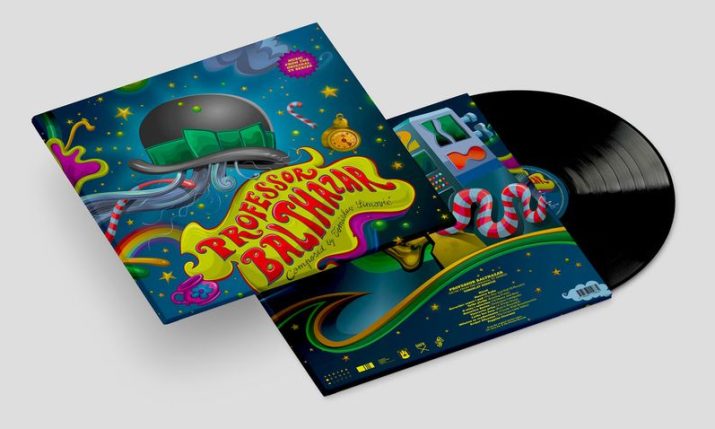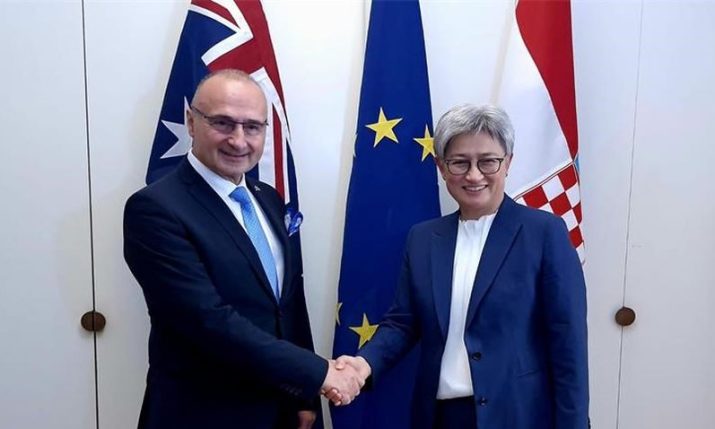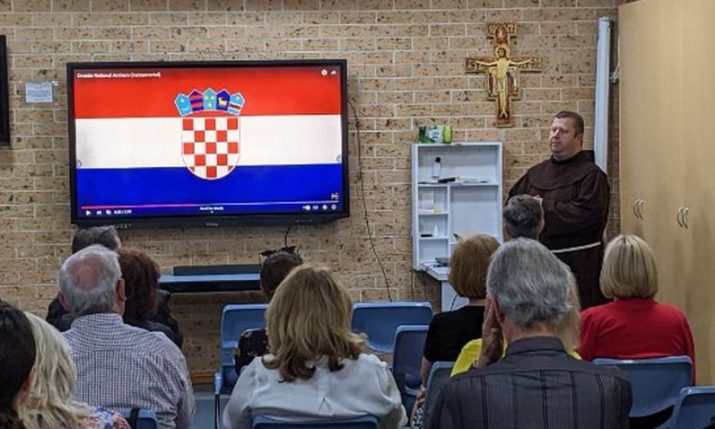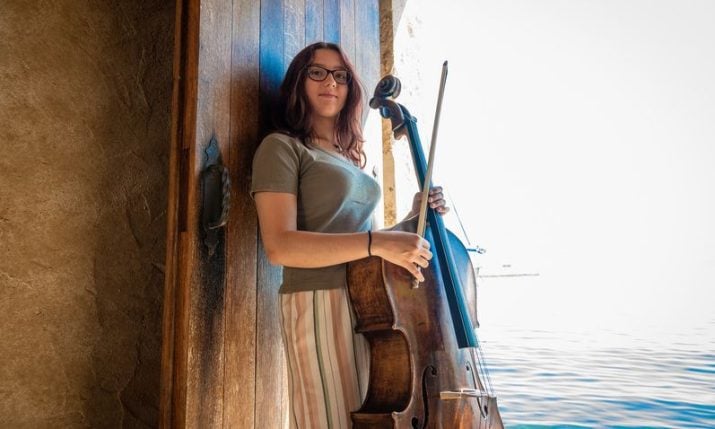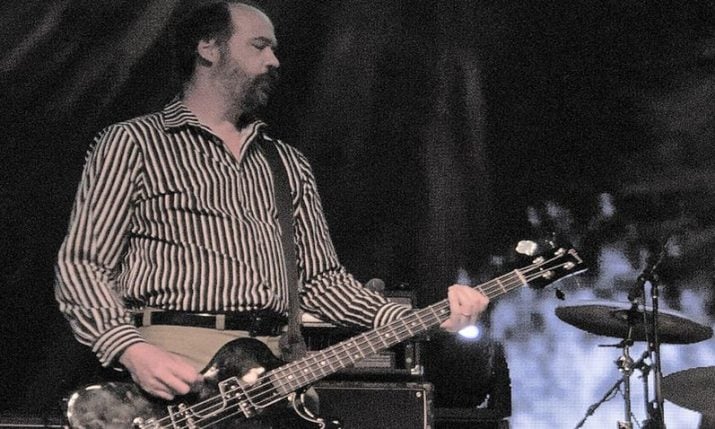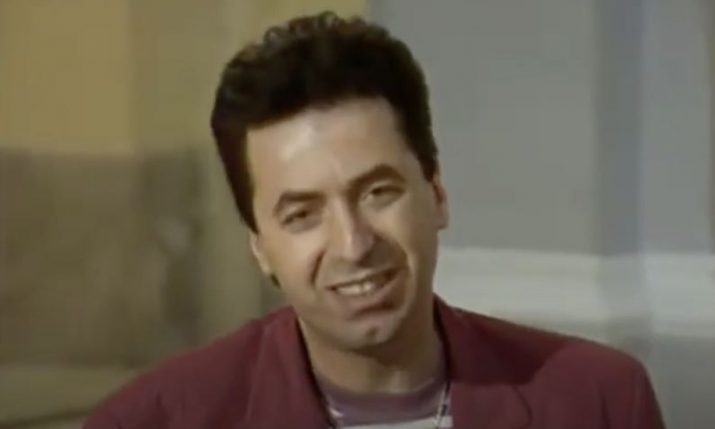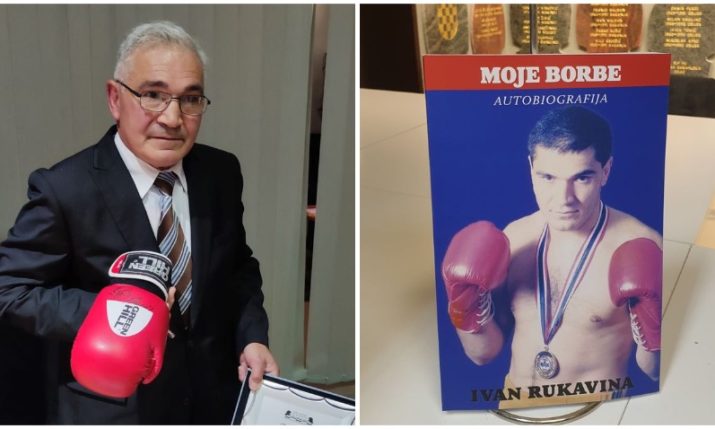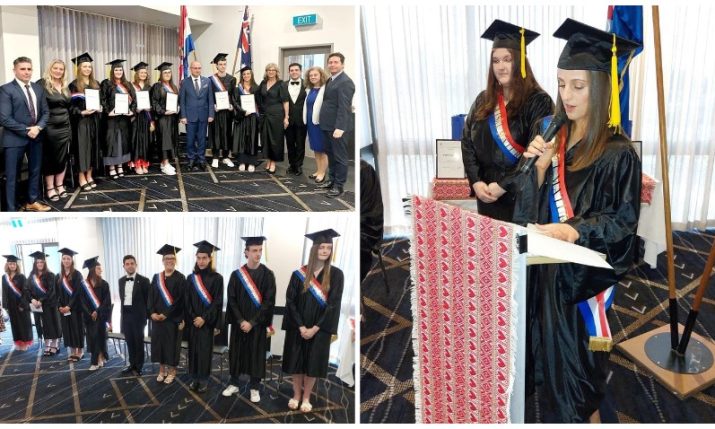Meet the Croatian-Australian sound engineer working with the best
- by croatiaweek
- in Entertainment
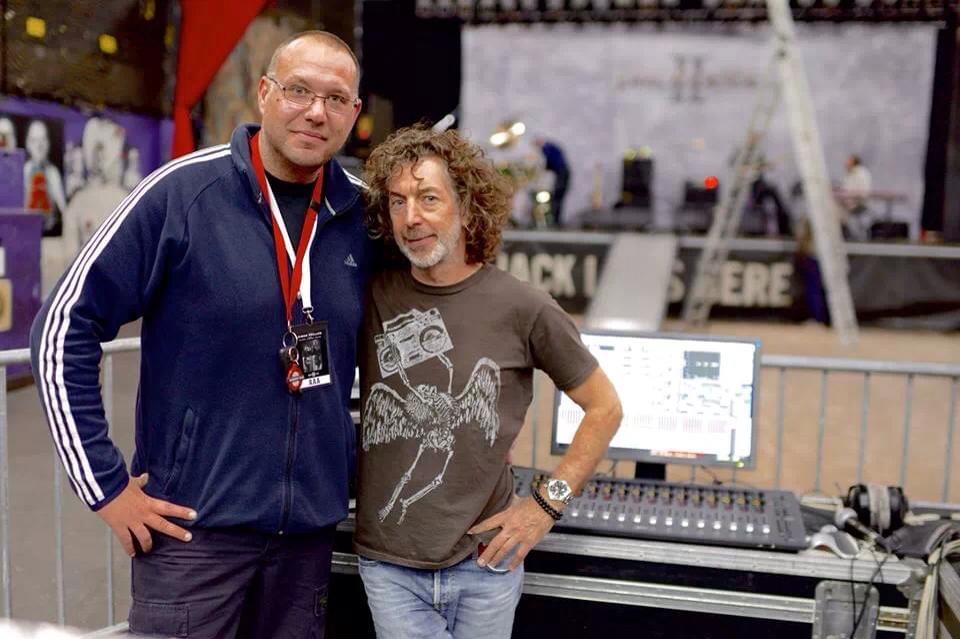
Marijo Šuica (left) (Photo: Private Album)
Marijo Šuica (47), a live concert sound engineer who works for the greatest musicians and drummers of today, was born in Adelaide, Australia and today lives in the Croatian capital Zagreb.
When he was 12, his father bought him his first drum set.
“I learned to play the drums alone until my dad started to get annoyed by the noise, so he got rid of them. At the age of 15 I left school, I had no will to learn. Dad then said to me, ‘Son, choose – a shovel or a school?’ ‘A shovel!’ – I replied and I started working with him on the construction site,” Marijo tells daily Vecernji list.
Later, a friend of Šuica’s enrolled in SAE, School of Audio Engineering.
“That school was unique, it was founded by an Austrian in Sydney. A friend told me I might be interested in that. And on the first occasion, when I was 19, I went with a friend to the open doors day of that school.”
And like a true music fan, he enrolled at the school.
Marijo completed the school in two years and received a diploma in Audio Engineering. At the final exam in 1994, he scored 98 out of a possible 100 points and was one of the better students of all generations who attended the world-famous school. During his schooling, he became close friends with his professor (drummer) Dean Edwards who had his own band.
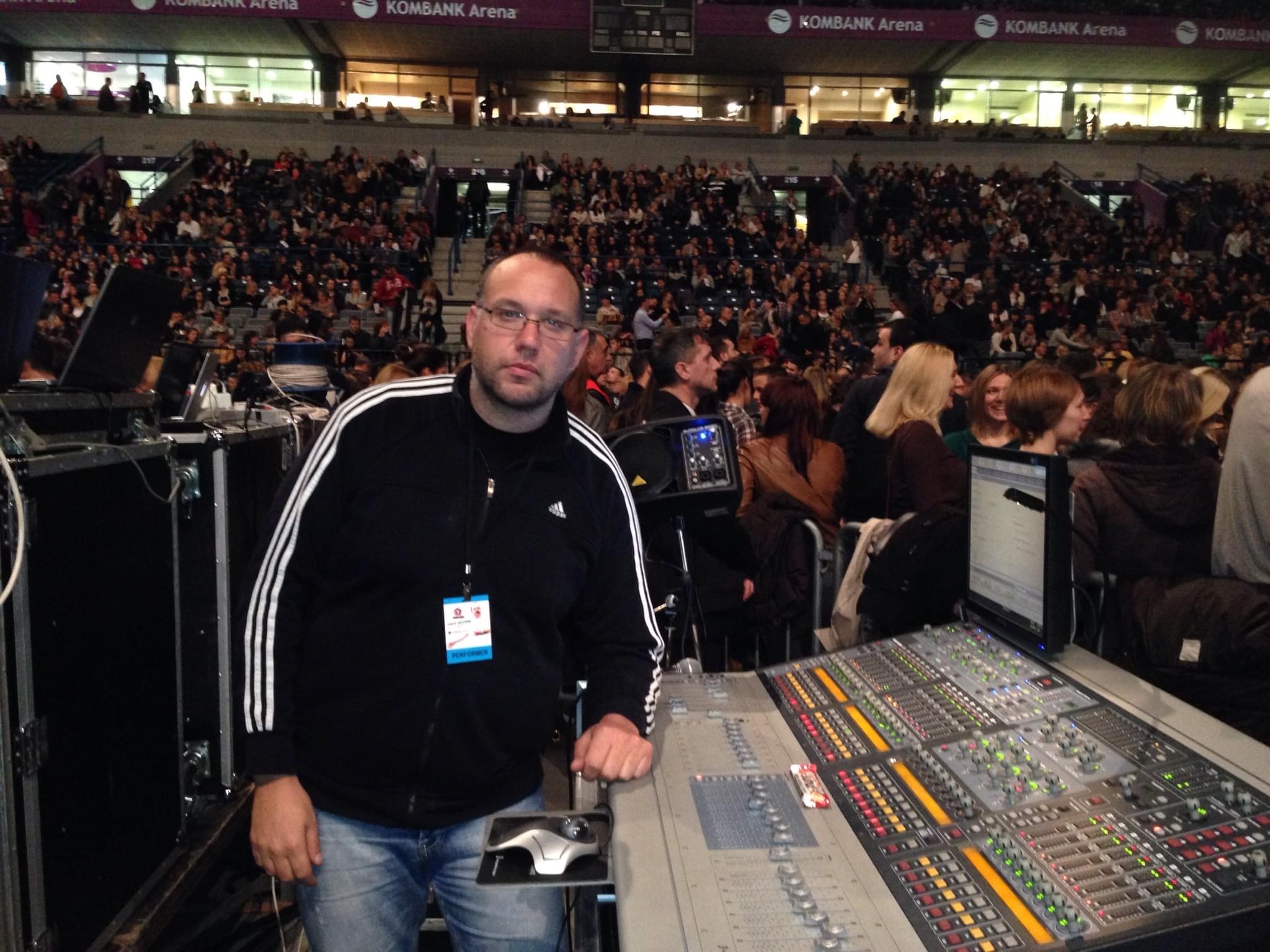
(Photo: Private Album)
“I asked him if they needed an assistant during gigs. So I started carrying their instruments and setting them up. They played on Fridays and Saturdays, but I ended up becoming the band’s live sound engineer very quickly. After that, a turning point in my life happened. The professor’s band I worked for were the support band for the famous Australian band The Whitlams from Sydney who played in Adelaide. When we came to soundcheck, they asked me if I was sound engineer for the opening act and told me that their sound engineer was not able to come and asked if I would mix the show for them. I did the concert and along the way, I recorded it all on tape directly from the mixing console on two channels and handed the recording over to the band leader. The feedback was great. Two weeks later, I got a call from Sydney to work with them. They asked me if I would move to Sydney. They were a band on the rise, one of the biggest bands in Australia, and won an Australian Music Award, the biggest music awards in Australia,” Marijo recalls.
However, life in Sydney was very expensive so Šuica had to work for other artists as well. In addition, he has worked for Clair Brothers Audio (Jands), the world’s largest company engaged in concert audio production.
From Hong Kong to a Porina Music Award
I was asked in 1997 to go to Singapore and move their equipment in containers from Singapore to Hong Kong, as one branch shut down and another opened. In July 1997, Hong Kong returned under Chinese sovereignty, and we had to technically carry out a demanding job, the large Hong Kong Hand Over Ceremony project. It was a big event, and the main job was to connect audio signals at all locations in Hong Kong and further into the world via broadcast. In addition, the task was to supply the PA sound for 65 stages that were set up in different places and connect them. We sent a signal to the whole world, Marijo, who was in charge of the sound design of the whole project, says.
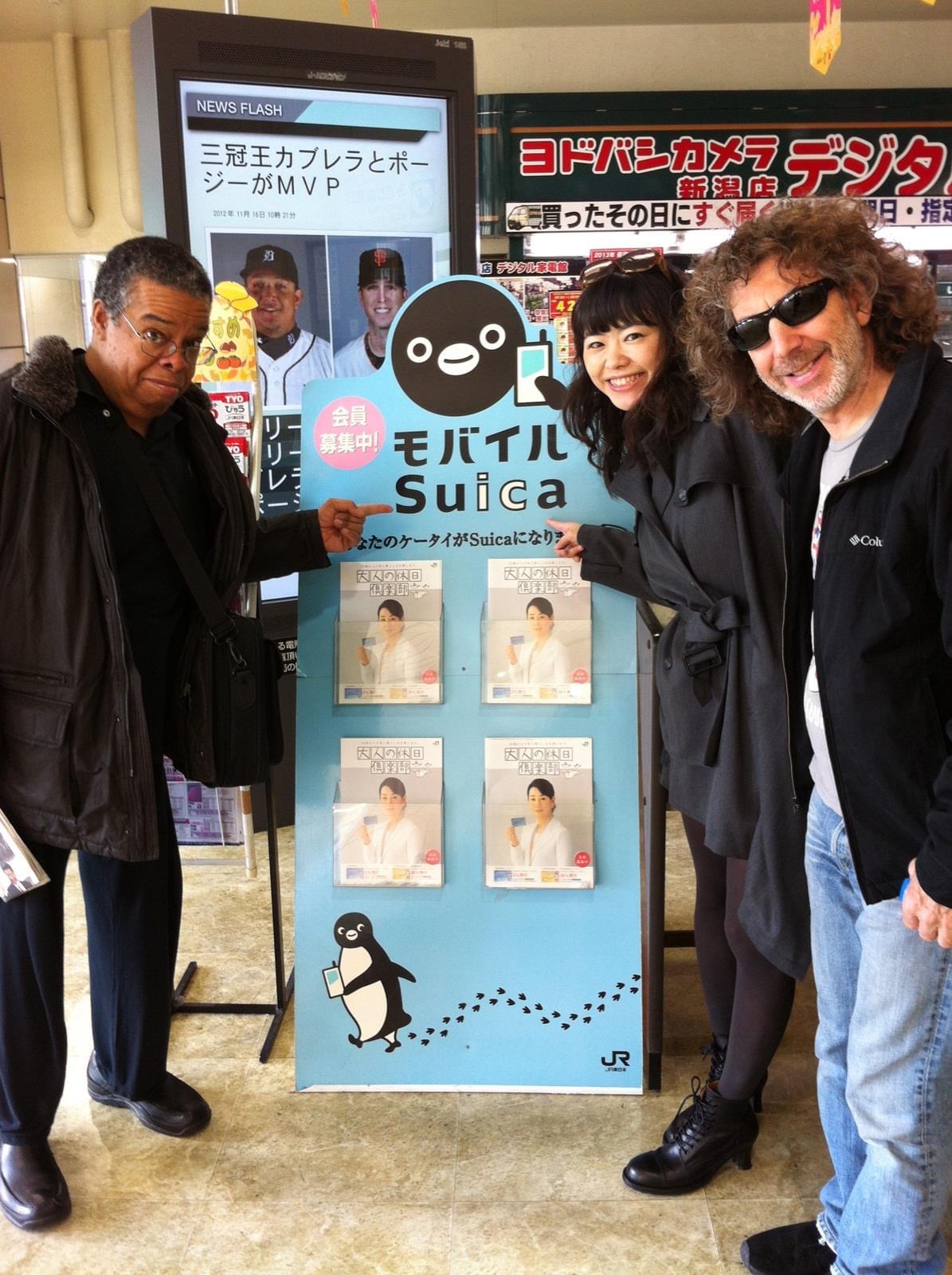
(Photo: Private album)
After that episode in Hong Kong, Marijo decided to return to Croatia after coming on vacation and falling in love with the country.
“We in Australia were raised as Croats, and our dream was to see our performers live, like Prljavo kazalište and others. I called the boss in Hong Kong and asked him if I could sign such a contract to work for six months in Croatia and six in Hong Kong.”
So, from 1997 to 2000, Marijo worked for half a year in Croatia and half in Hong Kong, planning production and logistics for various performers who were touring in Asia at the time. And at those concerts, he took care of all the equipment and manpower.
“In that period when I was in Hong Kong, but also in Shanghai and other big cities, I worked at various world corporate events such as the Microsoft World Summit and the Global Fortune Forum, as well as at various concerts. I did the same at the big Celine Dion concert at the old airport, at the concerts of Whitney Houston, the band Oasis and many other great performers.”
Marijo started working in Croatia as a live sound engineer for Prljavo kazalište. During the collaboration with Prljavo kazalište, they offered him, in collaboration with Fedor Bojić, the band’s then keyboardist and producer, to record the album “Dani ponosa i slave”.
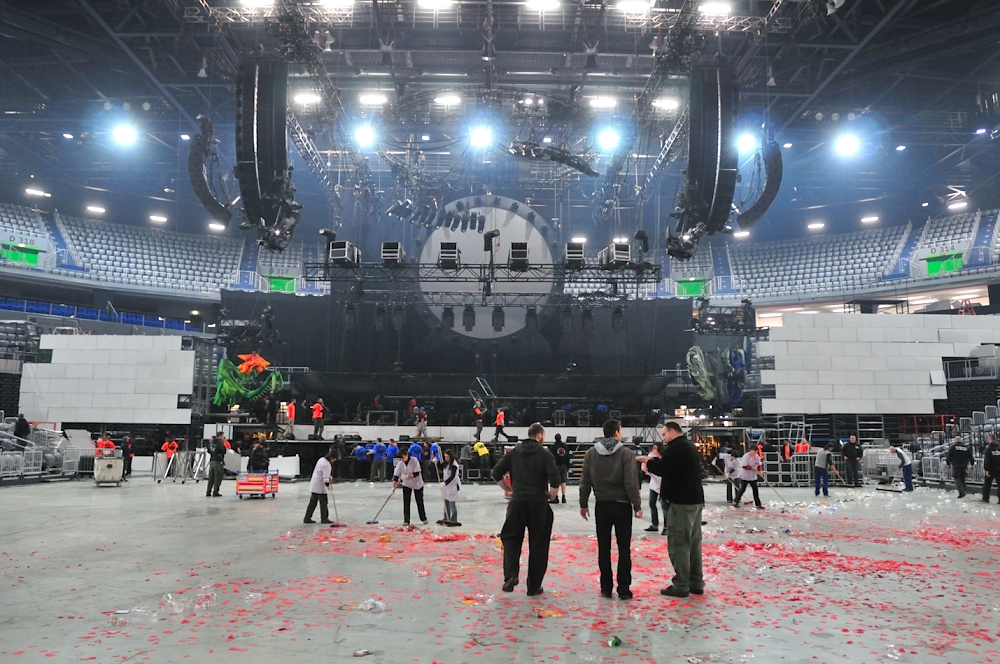
(Photo: Private Album)
“I helped record that album and then came back to Hong Kong to do the next six months. There I learned that we received a Porin award for the best recording of a rock album, which was the trigger for me to return to Croatia in 2000 and continue my career here,” he explains.
Apart from Prljavo kazalište, Marijo worked in Croatia from 1998 to 2010 as a live sound engineer for the group Divas, Nina Badrić, Vanna, Vatra, Vlatko Stefanovski, Let 3, Darko Rundek. He spent the most time though working for Tony Cetinski and the band Hladno pivo.
While living in Sydney, Marijo collaborated with his friend Simon Hardiman who was the production manager and monitor engineer for the world-famous group Toto.
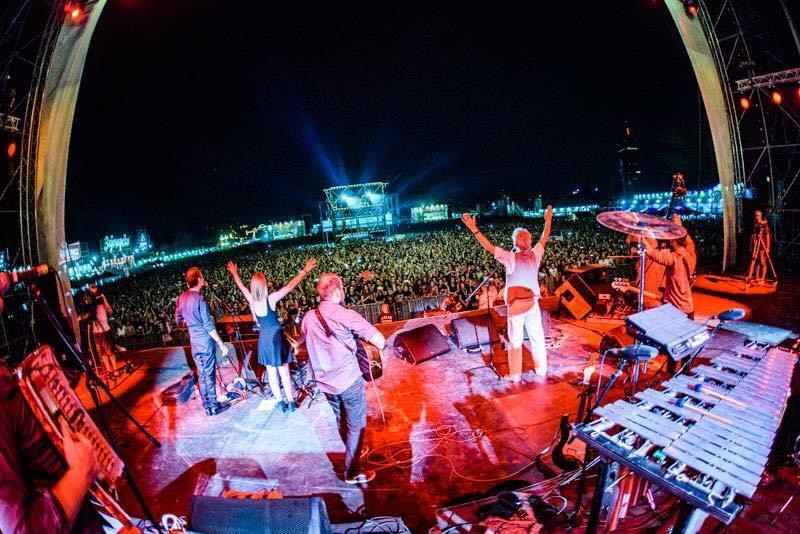
(Photo: Private album)
“Simon Hardiman called me in 2010 and told me that the band Toto had taken a break, but that two of their members, guitarist Steve Lukather and drummer Simon Phillips had their own projects.”
As they were going on their own tours at the same time, Marijo received an offer to tour with Simon Phillips as tour manager and live sound engineer. He accepted and then started working all over the world again. During a tour with Phillips, Marijo was offered the same job for a new project – a collaboration with renowned pianist Hiromi and one of the world’s most famous bass players, Anthony Jackson. The project was called Hiromi & The Trio Project.
“When I was with Hiromi on tour in Rotterdam (North Sea Jazz Festival) in 2015, a person approached me and asked me for my contact.
“I didn’t know who he was or what he did, and in a week I got a call from the management of famous drummer Steve Gadd, the drummer for Eric Clapton, Paul Simon, James Taylor, Chick Corea… They invited me to Los Angeles. I came in for an interview and Gadd told me, “I was in the audience at the North Sea Jazz Festival when you were doing the sound for Hiromi. I really liked how you worked, how you mixed. It sounded very natural, you belong to the old school of sound. ”He asked me if I would work as his tour manager and live sound engineer. I agreed, of course.”
Gadd, of course, set his own conditions for Marijo.
“He told me that he chose me for a reason, but that he also had some wishes of his own. I asked him what his wishes were. And he said that when he plays the drums on stage, he doesn’t want to hear from his position that the drums are coming out the loudspeaker. He wanted it to sound as natural as his position on stage. During soundcheck for the first two or three gigs, Gadd asked someone else to sit behind the drums, and he came forward to my (station) to listen to me compose the sound. Thank God, he came out three times and didn’t comment on anything. He winked at me and returned to the stage,” Marijo, who has been working for Gadd for five years during his tours and projects says.
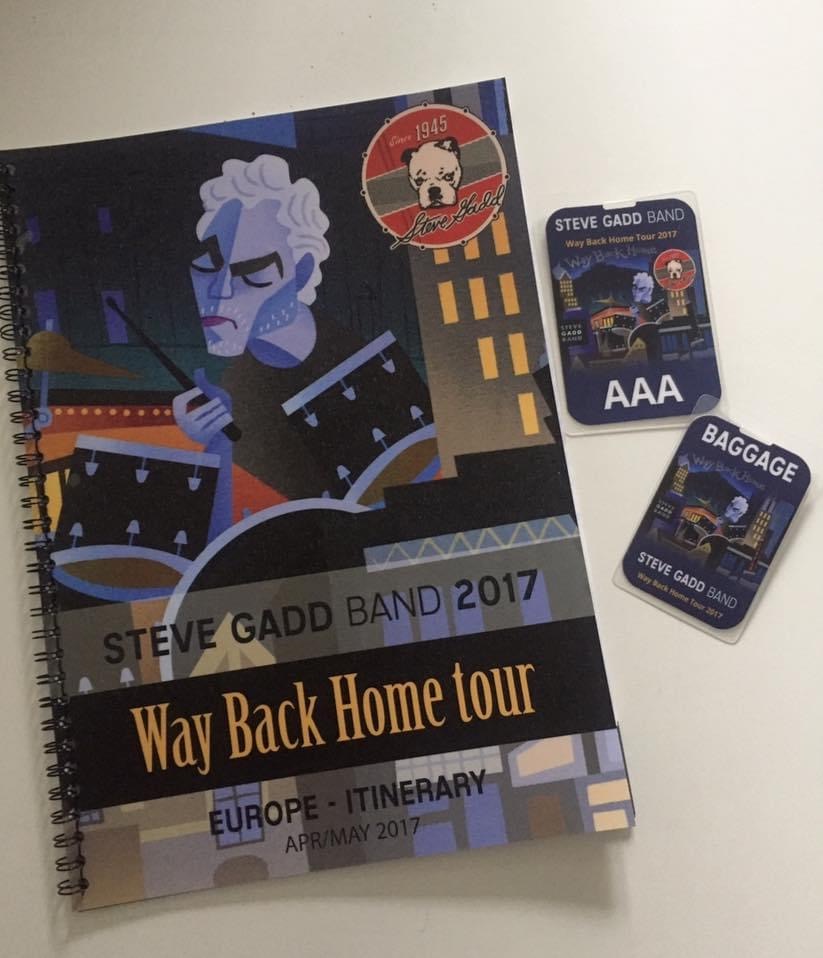
(Photo: Private album)
He could have taken anyone, but he hired Marijo as his tour manager & live sound engineer for all his performances, both in Europe and in America and Asia.
“Steve Gadd is a gentleman, as a musician, he has amazing hearing. We live on our bus on tours. He asks that after every concert we go to the next city immediately, we don’t sleep anywhere where we play. The reason is that he likes to ride at night, and when we get to a new place where there will be a concert, at five in the morning we check into a hotel, and he puts on a tracksuit and runs 10 miles every morning. Regardless of his age (75), he is in top form. With Gadd, I am fascinated by his statements he hosts masterclasses, such as that “he does not play drums, but plays music”. He wants to say that it is not just banging on drums, but that he creates music with the musicians around him: jazz, fusion, Marijo says, emphasising that holding concerts abroad is much different than in Croatia.
“Everything is written in the “tour book”, for example, the concerts mainly start at 8 pm, regardless of whether there are ten people or 30 thousand. The task of the tour manager is to make the so-called tour book on 50 pages where everything is written, from information about flights and accommodation, which I organise, including all the necessary visas and work permits, scheduling of dismantling the stage, to when it’s dinner, movement, and when its time for an interview. For example, I was with Steve Gadd on tour in Stockholm. When we had a break for a couple of days, the BBC wanted an interview, so I flew to London with him, and then we went back and continued the tour.
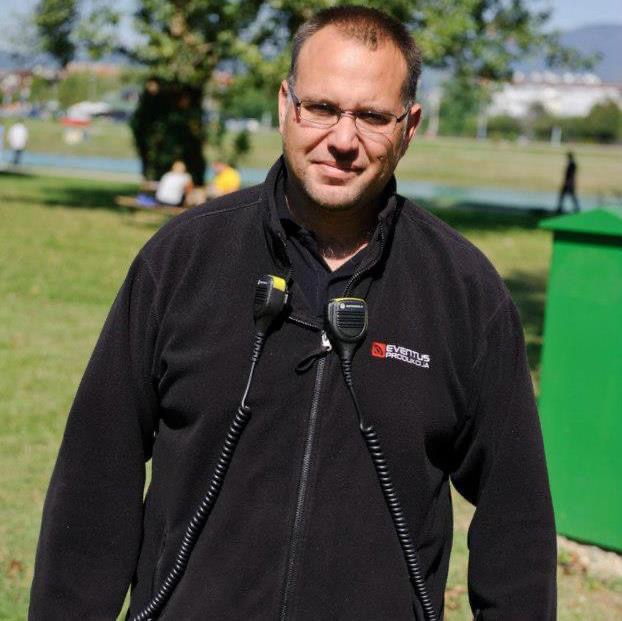
(Photo: Private album)
Since working with Gadd, Marijo has been called by other drummers to be their live sound engineer and tour manager who takes care of everything.
In addition to Simon Phillips, Steve Gadd Band and Hiromi, Marijo also works for Andy Timmons, guitarist/music director Olivié Newton-John, Michael Landau, the guitarist who played on Pink Floyd albums and was part of Eros Ramazzotti’s touring band as well as James Taylor, Ian Thomas, drummer for Mark Knopfler.
In Croatia, Marijo has also taken the role of being the “Crew chief”: he has worked for Metallica, Bon Jovi, Lady Gaga, Beyoncé, Roger Waters, Sting, Leonard Cohen, Seal, U2, and others. He led a local workforce that assembled and dismantled these huge concert productions. His biggest project was the U2 concert in Zagreb, for which he had to hire 230 local workers in three shifts of eight hours each, for 13 days. Marijo supervised everything.
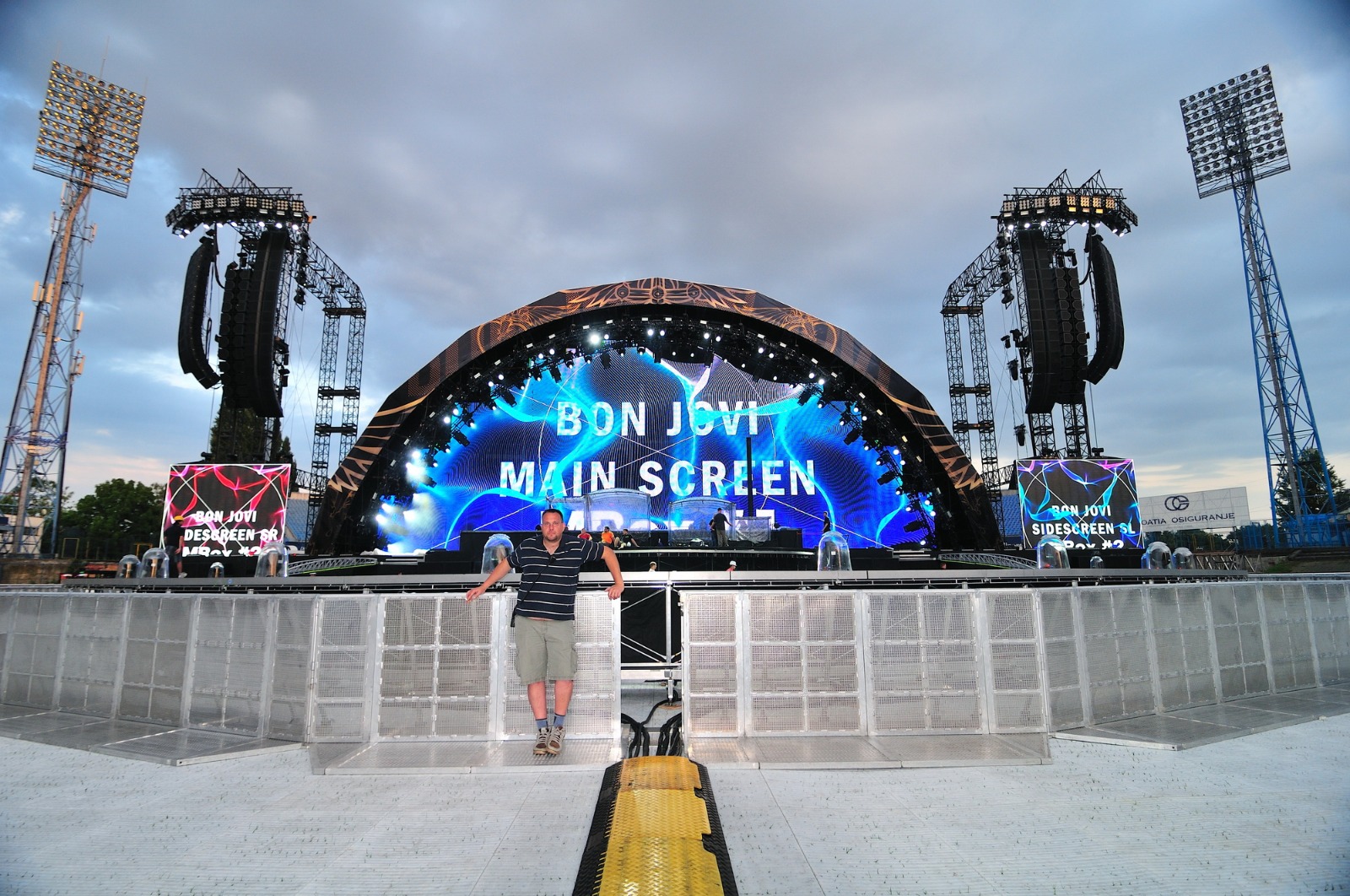
(Photo: Private album)
“In order to assemble the complete production of U2, everything that is needed for the concert was delivered in 107 semi’s. They have three of the exact same setups of equipment, while they are playing somewhere, somewhere else other equipment is being mounted, and a third is on its way to the destination where they will play. When you have such a project and 230 people, then it is divided into sectors: sound, lighting, video, backgrounds, assembling a concert structure, catering,” Marijo says, adding that Croatians who are engaged in this business are at the very top of the world.
“I have traveled the world, seen everything in terms of production and equipment, but we in Croatia are on the same level as foreigners, we have quality people and quality equipment. It’s all world-class,” he says, before adding.
“I often talk to foreigners, people from the industry, who have either been to our festivals or are in communication with our organisers, and they are all delighted with the quality. Our guys do their job more than honestly. When we worked for Beyoncé in Croatia, after the concert, her “stage manager” came and asked me to gather the local team that was working in the stands. He thanked everyone and said: “We have been on the road for nine months now, but you are the best local workforce since we have been on tour. The best!”. We unloaded 14 semi’s of equipment and assembled it in six hours, and in an hour and a half we dismantled and loaded everything into their semi’s, we are talking 60 tons of equipment in the air!”
When he goes on tour with world-famous drummers, Marijo takes Croatians whenever he can to help him as stage technicians, monitor engineers or drivers. As for the technical team and the workforce, when the pressure is on there are no better than the Croats he says. However, after the “lockdown” and the corona pandemic, the music industry and technical support for congresses stopped, and so did events.
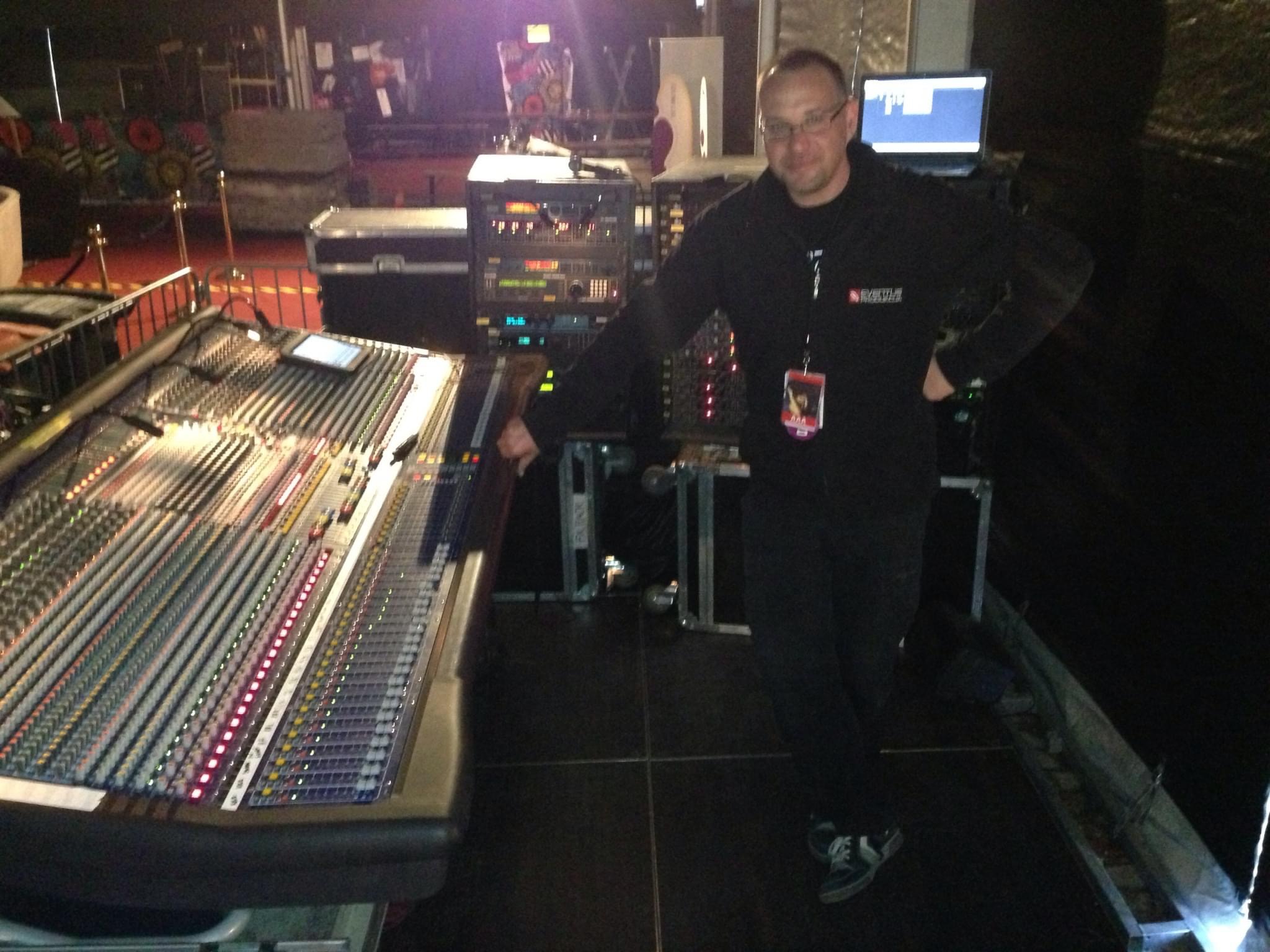
(Photo: Private album)
In addition to his touring concert company, Marijo has another one that deals with technical support for exhibitions & events as well as transport and storage services.
“As you can see, corona has arrived and we had to make a turnaround in the company and adjust to save jobs and maintain liquidity. One German company we worked with offered us to be agents for the sale and installation of air and surface disinfection devices, for offices and meeting rooms or any indoor space. In short, the device works on the basis of ultraviolet rays, ozone and ions, so that space (surfaces and air) is disinfected continuously 24 hours a day, in the presence of people. Like everyone, we work to survive in these difficult times. We saved jobs or reduced working hours. We have expanded our business, recently to Great Britain as well,” he says.
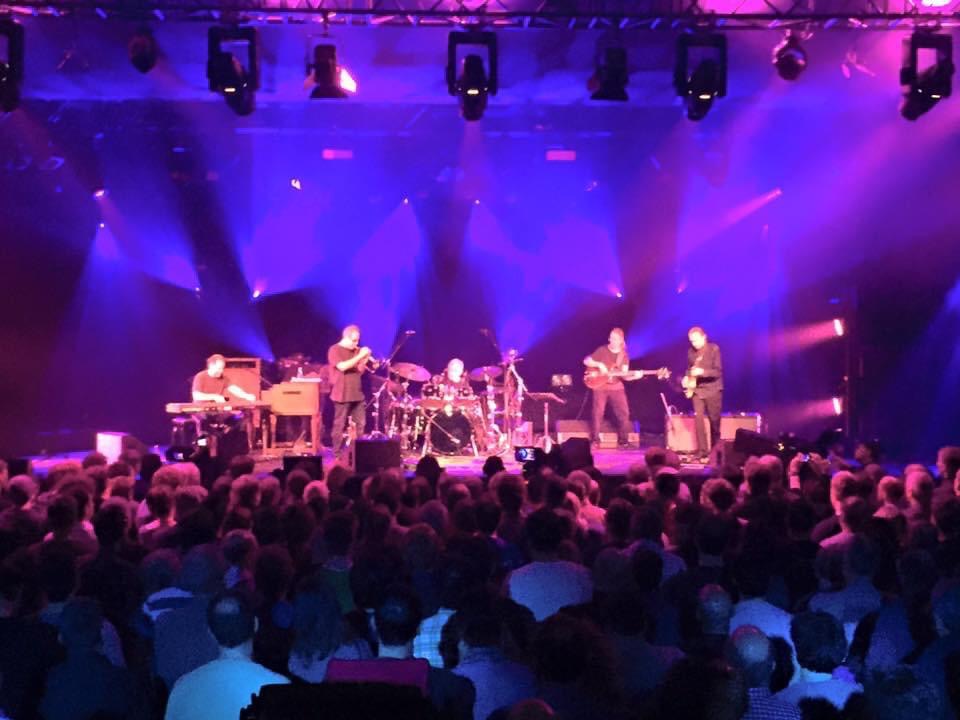
(Photo: Private album)
Marijo’s grandfather Ivan Veljača (1925-2015) was a well-known political prisoner, who ended up in prison for the first time as an enemy of Yugoslavia and socialism in 1951 and was imprisoned until 1956. In Lepoglava, he secretly supplied Stepinac with sacral books, the New Testament and others. After his release from prison, he ended up in prison again in 1971, then as a political prisoner. He was imprisoned together with Dražen Budiša, Marko Veselica and Vlado Gotovac in Stara Gradiška.
“Grandad Ivan constantly told me about Marko Veselica and Dražen Budiša and their role in creating an independent Croatia,” Marijo concludes.

